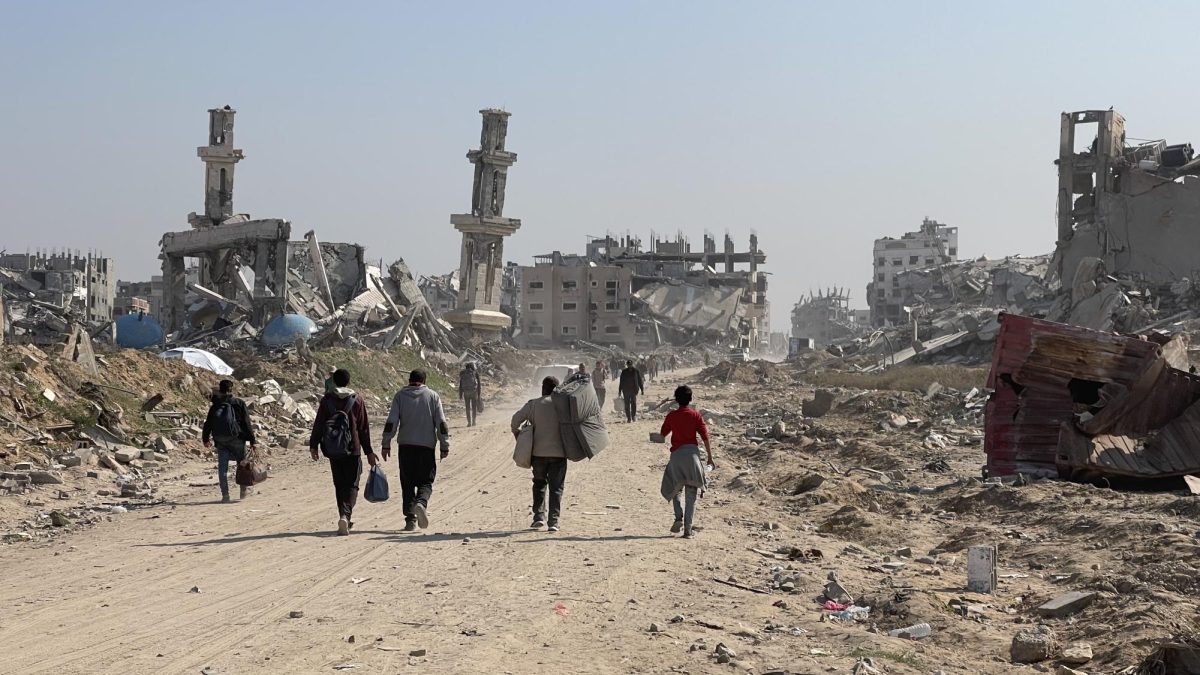By Jasmine Harris
The ladies of the Kappa Omicron chapter of Alpha Kappa Alpha Sorority, Inc. and the NCSU Collegiate 100 Chapter of 100 Black Men of America, Inc. held a very informative program focused on the impact of the judicial system on the black community, Tuesday February 22, 2011 in SAS Hall. The purpose of the program was to invoke discussion and to inform students of factors that place many African American men and women into jails and prisons.
The program began with students watching two documentaries on black males and the prison system. According to the documentaries, 1 in every 100 Americans are in jail or prison, however 1 in every 15 African Americans are in jail or prison. The documentaries provided insight on the War On Drugs in America by attorney and author of The New Jim Crow, Michelle Alexander. The documentaries raised questions and great discussions on whether there were more black men in jail than in college. The majority of the African Americans in the documentaries assumed that more black men were in jail, and so did the attendees of the program. After revealing that there were actually more black men in college, the question was raised as to why many people believed there to be more black men in jail.
Students brought up several reasons, such as the media portraying negative statistics about black people and the racial bias of blacks committing more crimes than other races. Quite a few people mentioned that they could relate based on personal experience, as many of their relatives were in jail or prison compared to the amount of their relatives in college. There are also bad influences that may lead young black men into the prison system such as exposure to gangs and violence, the absence of a father figure in the black family, drugs and the lack of opportunity in their environments. Since many African Americans face economic situations, many say that college takes African American men and women out of that environment. It keeps young men and women busy and influences them to make the right decisions, so they would not have to return to that environment. Senior in Communications Media and president of the Collegiate 100, Keyuntae Ward, mentioned that some people do make the right decisions, but despite those decisions they still have setbacks which may turn them in the wrong direction.
Jamillia Lackey, a junior majoring in Math Education and Suzette Aiken, a senior in Elementary Education, both members of Alpha Kappa Alpha, brought up great points that black men and women are not hearing what they need to be hearing. This led to discussion on possible solutions for blacks being victims to the judicial systems. Perhaps if college life looked more appealing to the young African American male, then more would want to attend. Suzette Aiken stated, “It’s highly important for young men and women to be educated about themselves and their culture. It’s impossible to empower each other without a clear understanding of ourselves.” A student mentioned in one of the documentaries, that if adequate education was given in jails and prisons, it’d give inmates something better to do with their lives. More people would come out as better citizens and would have something to look forward to with their second chance at life.
Finally, students were broken up into groups and given scenarios of situations in which an African American somehow broke the law and the challenges they faced because of it. A scenario that was used, as it relates to college, was an African American high school student charged with assault and battery after getting into a fight at a house party, and the effects that would have prior to and after her college career. These scenarios really helped students see that the smallest things in the environments that blacks may be exposed to can have a great influence on their lives, which is a way they are victims to the judicial system.
There are approximately 28,000 blacks and 6,000 whites in jail or prison in the United States. This means that about four times as many blacks are in prison compared to whites. “It’s A Hard Knock Life” was a great success; the presentation gave students some insight on what they could be doing to change these disheartening statistics. Without change, African Americans face a threatening situation to their existence. At the MTV Political Forum in 2007, presidential candidate John Edwards stated “…the idea that we can keep incarcerating and keep incarcerating — pretty soon we’re not going to have a young African-American male population in America. They’re all going to be in prison or dead. One of the two.” As college students well on our way to success, it’s important that we continue to reveal to the African American community and to the world that there are better choices for our people.







